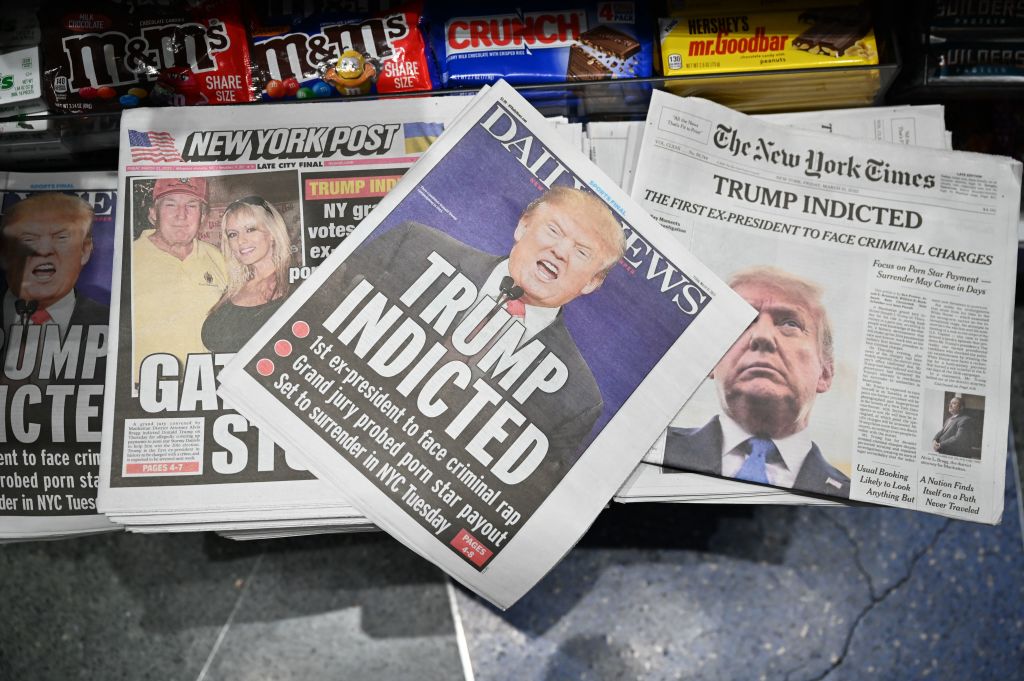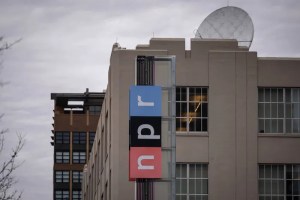This week I hosted my colleague Amber Athey on our District podcast to talk about her first book, The Snowflakes’ Revolt: How Woke Millennials Hijacked American Media. I began by asking her about the Donald Trump indictment, news of which broke on Thursday night via the New York Times and Associated Press, before Manhattan DA Alvin Bragg’s office had announced the grand jury’s decision.
The Times were regularly updating their coverage prior to Bragg’s confirmation about how four, and then five, sources with knowledge had tipped off their reporters about the decision. Later on Thursday, Politico were spilling the beans about Bragg negotiating Trump’s surrender with the former president’s legal team, describing “the exchange, which was relayed to Politico by a law-enforcement source.”
Trump has always referred to the various probes and investigations into him as “witch-hunts” and has decried a “Deep State” and “establishment” that’s hellbent on getting him. I asked Amber whether the media was helping him sell this trope by excitedly recounting how law enforcement sources were leaking them details of supposedly nonpartisan legal cases before the DA officially confirmed them.
“It’s kind of like the outcry that occurred when Roger Stone had his home raided by the FBI and the CNN cameras were sort of conveniently ready outside to film the whole thing go down,” Amber replied.
“It just leads to this perception that the media is in bed with the law enforcement sources. And as I talk about in the book, this is a phenomenon that’s pretty prolific throughout the entire media, where these outlets claim to be speaking truth to power and fighting on behalf of marginalized voices and all of this nonsense. But most of them are getting information directly from the intelligence community, law enforcement sources and pretty much all of these powerful people that they claim to be taking head on.
“So, for example, the New York Times was one of the outlets that repeated the claim most often that all seventeen intelligence agencies or organizations agreed that Russia had meddled in the 2016 election, whereas quite a few of these intelligence organizations have no standing or qualifications to even make that assessment. It turned out that it was only four that actually made that claim, and the original claim actually came from none other than the Clinton campaign.
“So you had the paper of record in the United States repeating a false narrative from a Democratic candidate and certain members of the intelligence community, particularly James Clapper, who wanted to push this specific talking point.
“It’s become pretty clear that these people who claim to be fighting for the downtrodden are actually quite in bed with some of the most powerful people in our country.”
Listen to our conversation here:


















